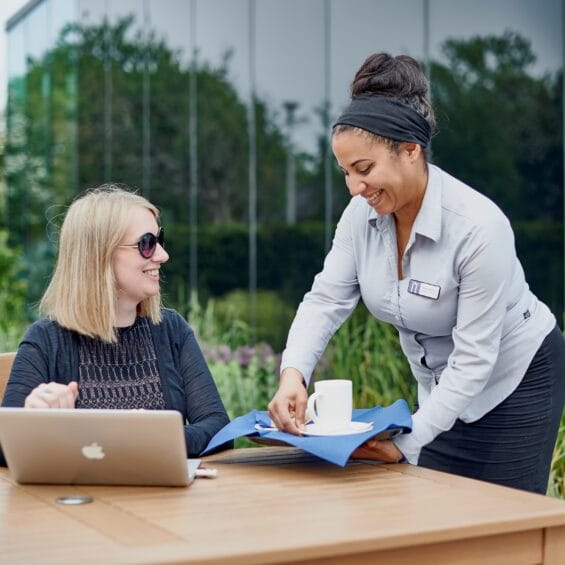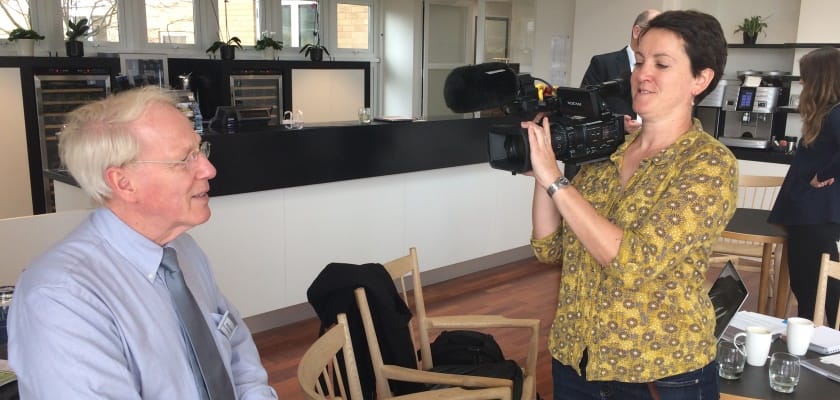Over 150,000 cups of delicious ground coffee are enjoyed at the Møller Institute every year. This creates over two tonnes of ground coffee to recycle. We recycle this as part of our commitment to being a sustainable and responsible leadership development and conferencing centre, and our aim to achieve zero to landfill.
Today (7 March 2018) we were visited by Kate Prout, Anglia TV presenter to film a feature for Anglia TV which will air on Thursday 8 March. Taking part in the feature were our coffee supplier Liquidline and the coffee bean recyclers – bio-bean.
bio-bean® is an award-winning clean technology company that has industrialised the process of recycling spent coffee grounds into advanced biofuels and biochemicals. Founded in 2013 by Arthur Kay, bio-bean manufactures a range of products from waste coffee grounds, saving businesses money, reducing greenhouse gas emissions, and displacing conventional fossil fuels.
Our Guest Service Managers Alex King and Mark Campbell have led on this project and below have answered a few key questions about this project.
Why did you decide to get involved?
We have just been voted Best UK Management Training Centre so our reputation and reach is such that we can have a large impact on the environment. One of our main objectives this year was to reduce our general waste by 50% with a view to becoming zero to landfill in the very near future. During this process we reviewed our whole waste management process. Our main objective was to dispose of our waste in the most sustainable way possible. It was during this process we heard of bio-bean. We had always been disposing of our coffee waste through food waste bins that went onto anaerobic digestion to produce energy. Although this is a more sustainable way of disposal then landfill or composting it was not the most efficient. We researched bio-bean and found out the process uses 30% less emissions then anaerobic digestion and 60% less than landfill. Our new waste contractor, Mick George, partnered with bio-bean which gave us a great opportunity to engage without increasing carbon emissions through transport through separate contractors.
What’s the process?
The process we made as simple as possible. This means we have maximum staff engagement meaning all coffee grounds are collected. All we do now is collect the coffee ground waste straight from the machine into the bin caddie. At the end of each day this is disposed of in a larger bin within the recycling centre. This is then collected once a month by our main waste contractor.
What benefits are you seeing?
The main benefits are for the environment. We generally feel as a big business it is our responsibility to conserve the environment to the best of our ability for future generations.
Do you tell your customers about the partnership?
We have started using bio-beans flyers around the coffee machine as these were a good start to making customers aware. In the future we are looking to tailor the sign with specific figures of carbon emissions saved using this service. We are also considering selling the coffee logs so customers get a chance to experience the coffee logs in the comfort of there own home knowing they contributed to making them by just having a cup of coffee.


